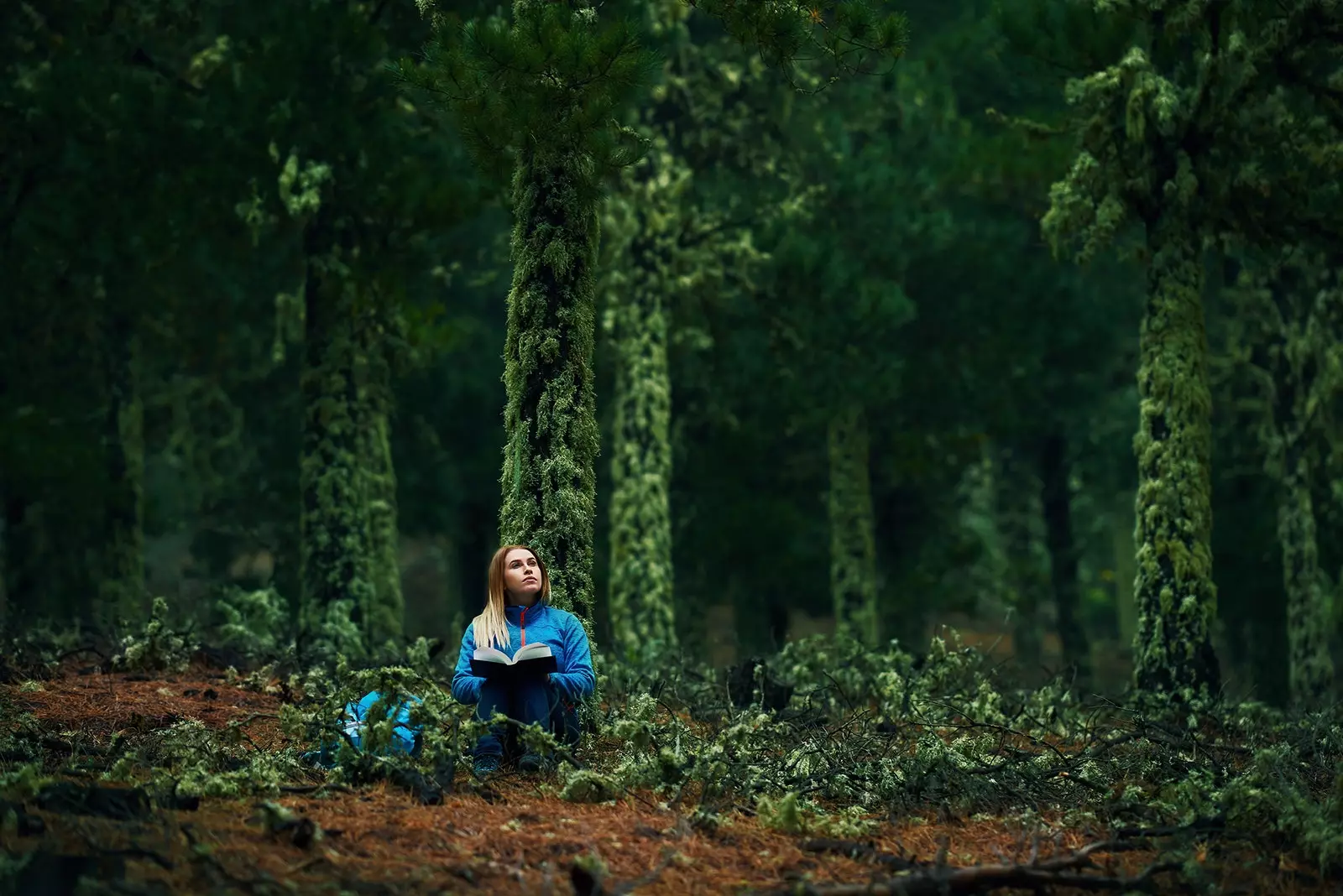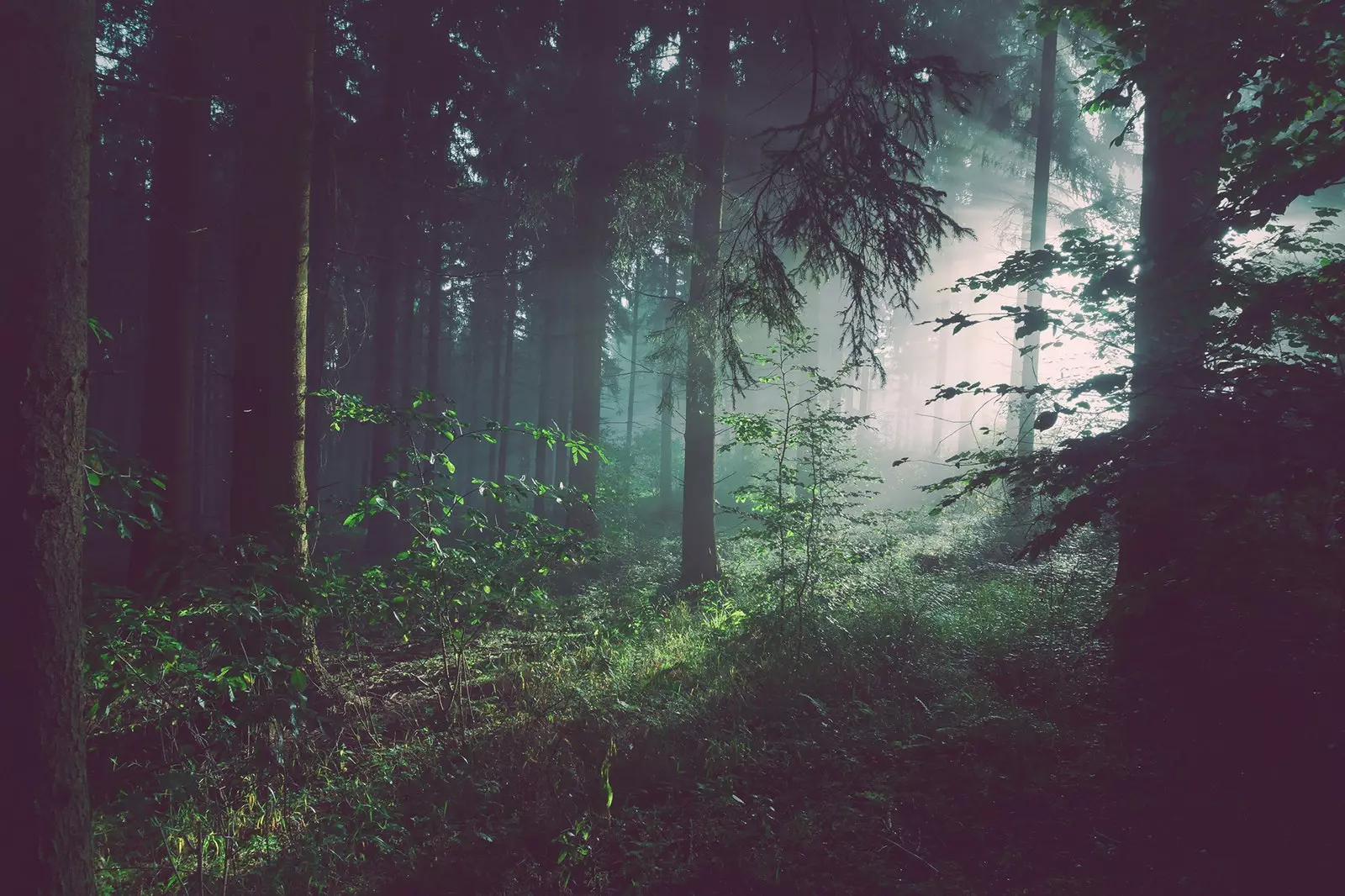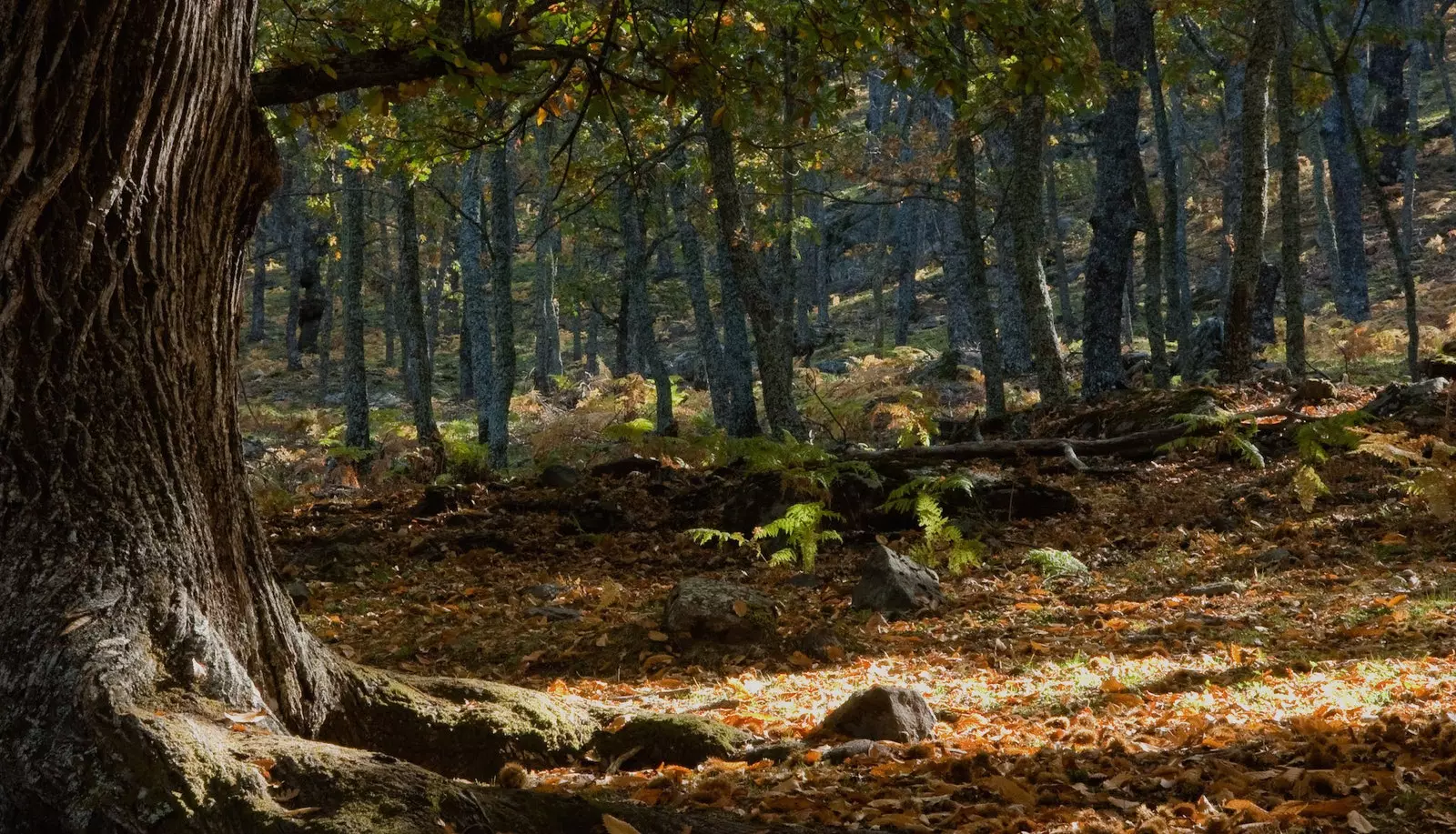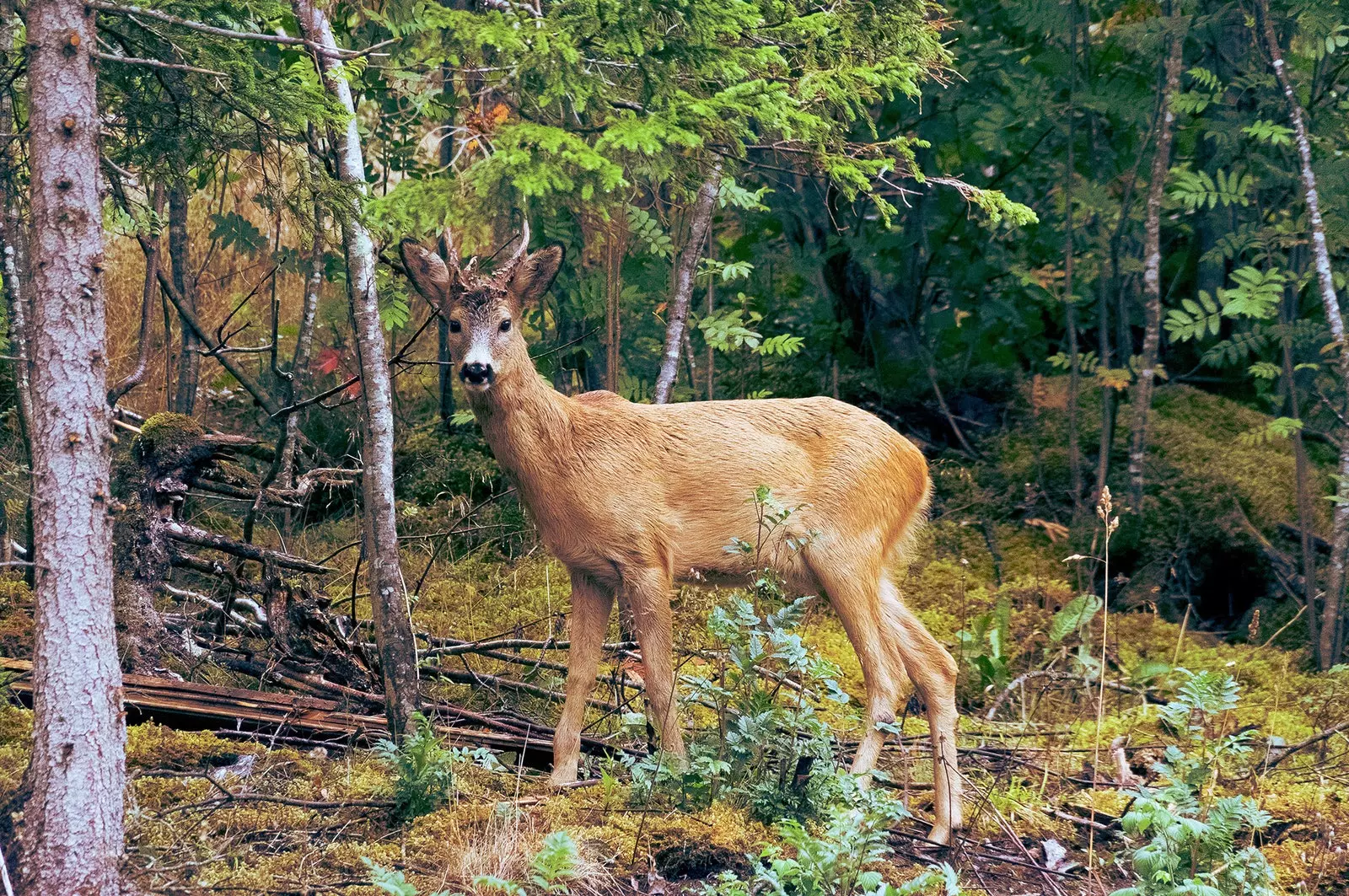
Let's save our mountains: this is how Territorios Vivos stands up to climate change
** Living Territories ** is an organization dedicated to the study and care of protected natural areas. This year it has managed to materialize one of its most ambitious projects: workshops on 'improving resilience in mountain socio-ecosystems as a tool for adaptation to climate change'.
Its objective: tackle two problems that are already affecting rural areas of special environmental value, **climate change and depopulation**. The perpetrator of it all: your president, Robert Aquerreta . The places chosen for these workshops are, of course, biosphere reserves: **Omaña and Luna Valleys (León) and Ordesa-Viñamala (Huesca) **, both in representative areas of our country ( Cantabrian Mountains and Pyrenees), since they are "sustainability laboratories". The mantra of these days aims high: "Let's save our mountains", since they represent "diverse and very fragile territories".

Our forests, our lungs
An example of this fragility is that of the very territory in which we find ourselves: Canales-La Magdalena, district of Soto y Amío, in the middle of the Valley of the Moon . Alipio García de Celis, president of the Omaña and Luna Valleys Biosphere Reserve and professor of Physical Geography at the University of Valladolid, explains the impact that climate change will have on this same area and how it will affect its socio-economic activities. economic. The data is very worrying: by the end of the century, springs will emanate between 20% and 40% less and practically nothing will snow in the Cantabrian Mountains, so the years with water deficit.
But the effects of climate change are already noticeable in any mountain area, much more sensitive than cities: in recent decades temperatures have risen , rainfall has decreased and, consequently, water resources have already decreased. “I have no solutions”, warns Alipio, although he does make some recommendations such as improving water consumption control systems “requiring driver installation” . The debate quickly heats up among the neighbors. Most are in favor, but there are those who categorically refuse to put any controller on it.
There are those who, in addition to awareness, join the action. Such is the case of **Elisa and Alipio (another Alipio) **, a young couple who despite living in León city are about to take a big step in their lives: leave everything and go live in La Urz, a nearby village. They represent better than anyone the present and future of the area, which, like so many others, faces the great problem of depopulation. And it is that, as Gema, one of the neighbors, points out, none of the ideas that are beginning to be raised can materialize "If we don't start repopulating."

Living Territories and the need for climate change talks
We have the opportunity to get to know you all more thoroughly in the workshop that you have prepared Jorge and Lucila representing Altekio , a non-profit cooperative created in 2008. Between the two they carry out a dynamic that will last until the next day, where the attendees try to imagine how they would like the area to be in the coming decades and, from there, all sorts of ideas are raised about how those goals could be achieved.
Together, the proposals that they liked the most are voted on at the end: provide facilities to repopulate the area, promote self-employment and autonomous work, value and care for the natural environment, commit to respectful and sustainable tourism...
It's about searching tangible and achievable actions , aimed at recovering, maintaining or improving the capacity of environmental services identified as vulnerable to the risks of climate change. Also improve productive activities in relation to these ecosystems and help the diversification of socio-economic activities”.
AND NOW THAT?
Once the sessions are over in Leon and Huesca, Living Territories presents its conclusions in Madrid. So far it has gone down Natalie Castro , manager of the Omaña and Luna Valleys Biosphere Reserve , who assures that the project has been as “interesting” as it has been fast: “People have been very involved. They are very expectant for the actions to begin.”
For his part, Sergio García, manager of the Ordesa-Viñamala Biosphere Reserve, maintains that its 6,000 inhabitants "want to continue living in their territory and carrying out their activities." He further adds that they are “tired of grand strategic plans. We want small concrete actions. The tangible issue is very important.”
These actions, the result of the work carried out, have been compiled into ten different categories, estimating the budget and its level of impact. They are as numerous as they are interesting: create a framework for interaction between biosphere reserves and related territories to exchange knowledge and experiences, promote sustainable forest management plans in mountains where there is currently no management, awareness programs for schoolchildren in relation to the quality of "your" water and the importance of its responsible consumption... Among all the attendees, a a final workshop to try to see how their costs could be minimized and their results maximized.
Representatives from other territories where similar initiatives have been carried out also attend to immerse the staff in their own experiences. Cristina Herrero, coordinator of the RB Dialogues project , she exposes collective actions such as the creation of the Association of forest owners of Montseny, with comprehensive initiatives of forest management and use of biomass.
Mikel explains how his project to adapt the forests of Menorca to climate change worked, pointing out that the process may have been more important than the actions themselves. Manu narrates how they faced each other from the Urdaibai Biosphere Reserve to problems such as erosion or the disappearance of beaches and marshes.

Let's save our forests
And it is that the exchange of information between associations and territories is one of the keys to this final day. To conclude it, Roberto explains the following steps of Territorios Vivos, which consist of collecting all the information obtained and, from there, creating an action plan to carry it out in the next two years in both reserves. "It is not in our hands to solve climate change", so they bet on "small actions" so that they do not "stay in a bluff".
Afterwards, it will have to be the neighbors themselves who take the witness and continue developing the actions, either collaborating with the town councils and neighborhood councils, or organizing new associations. Likewise, another of the objectives of these first workshops is that “other territories are infected” and, if they get sponsorship again, celebrate them in other Spanish biosphere reserves in the near future.
Twentysomethings and retirees, individuals and associations, journalists and businessmen, environmentalists and politicians... Together to face a problem that already affects us all: climate change . "It's not going to do any good," laments one of the attendees skeptically. "We are here, that's the difference," answers another. And the revolution begins with oneself. Either by moderating water consumption or responsibly managing the waste it generates. Local solutions to global problems.
